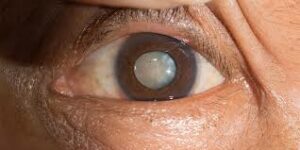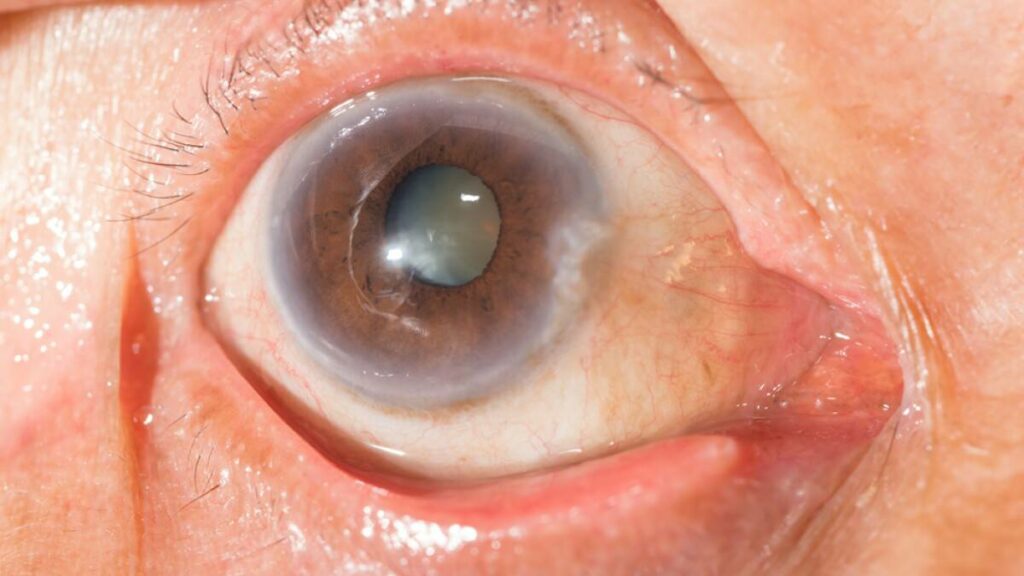An incipient cataract is a type of cataract that has not yet fully developed. This means that the symptoms of a cataract are not yet present, but the condition is still there. If you think you may have an incipient cataract, it is important to get it checked out by your doctor. In this blog post, we will discuss what an incipient cataract is and some of the things you should know about it!
What Is An Incipient Cataract
 An incipient cataract is a very early stage of cataract development. At this stage, the cataract is usually not visible to the naked eye and does not usually cause any symptoms. However, an incipient cataract can be detected during a comprehensive eye exam.
An incipient cataract is a very early stage of cataract development. At this stage, the cataract is usually not visible to the naked eye and does not usually cause any symptoms. However, an incipient cataract can be detected during a comprehensive eye exam.
This type of cataract is usually treated with a wait-and-see approach, as they often do not progress to the point where they need to be surgically removed. However, in some cases, an incipient cataract may need to be monitored closely or treated with medication.
Because these cataracts are so small, they do not usually cause vision problems. However, if left untreated, an incipient cataract can grow and eventually lead to vision loss. If you are diagnosed with an incipient cataract, be sure to follow up with your doctor as directed.
While an incipient cataract does not usually cause symptoms, there are a few things you can do to help prevent them from progressing. Just be sure to contact your doctor if you experience any changes in your vision.
What Are The Clinical Signs Of This Cataract?
There are a few clinical signs that are associated with an incipient cataract. These include:
- Blurry vision: It can be difficult to see clearly when you have an incipient cataract. You may notice that your vision is not as sharp as it used to be.
- Glare: Sunlight or bright lights may seem excessively bright and cause glare. This can make driving at night or in the rain more difficult.
- Changes in color perception: You may notice that colors appear to be less vibrant. This is because the cataract can cause light to scatter inside the eye.
Decreased vision and changes in color perception can make it more difficult to read or do other activities that require good vision. If you have an incipient cataract, it is important to see your eye doctor for a comprehensive eye exam.
Some other symptoms that a person with an incipient cataract may experience include:
- Eye fatigue
- Headaches
- Difficulty driving at night
- Trouble reading or doing other tasks that require good vision
If you have any of these symptoms, it is important to see your eye doctor for a comprehensive eye exam. Early detection and treatment of an incipient cataract can help prevent vision loss.
What Causes Incipient Cataracts?
 There are a few different things that can cause an incipient cataract. These include:
There are a few different things that can cause an incipient cataract. These include:
- Aging: This is the most common cause of incipient cataracts. As we age, the proteins in our eyes start to break down and clump together. This causes the lens of the eye to become cloudy.
- UV Exposure: Too much exposure to UV rays can also cause an incipient cataract. This is why it’s so important to wear sunglasses and hats when you’re out in the sun.
- Diabetes: Diabetes can also lead to an incipient cataract. This is because high levels of sugar in the blood can damage the proteins in the eye.
- Injury: A blow to the head can sometimes cause an incipient cataract.
- Certain medications: In some cases, certain medications can cause an incipient cataract. These include steroids, anti-inflammatory drugs, and antipsychotic drugs.
These are just a few of the things that can cause an incipient cataract. If you think you may have an incipient cataract, it’s important to see your doctor right away. They will be able to tell you for sure and help you come up with a treatment plan.
How To Diagnose It?
An incipient cataract can usually be diagnosed during a routine eye examination. Your doctor will ask you about any symptoms you’re experiencing and will conduct a thorough examination of your eyes. This will likely include:
- Visual acuity test: It measures how well you see at various distances.
- Slit-lamp examination: A special microscope is used to examine the structures in the front of your eye.
- Retinal examination: This allows your doctor to evaluate the health of the back of your eye.
These methods can help your doctor determine if you have an incipient cataract and, if so, how advanced it is. In some cases, additional testing may be needed. You may need to have a special type of X-ray called an ultrasound scan or a CT scan. These imaging tests can help your doctor get a better look at the cataract and see if it’s causing any other problems.
If you’re diagnosed with an incipient cataract, your doctor will likely recommend close monitoring. With regular eye exams, your doctor can track the cataract’s progression and determine if or when surgery may be needed.
What Are The Treatment Options?
There are three primary treatment options available for incipient cataracts:
- Wait and see approach
- Surgery
- L- laser therapy
The best option for you will be determined by the severity of your symptoms, as well as your personal preferences. If your vision is only mildly affected, you may choose to simply wait and see if the cataract progresses. If it does, you can then elect to have surgery or laser therapy.
Surgery is the most effective way to treat a cataract, and it is usually recommended for people who have advanced cataracts that are significantly affecting their vision. During surgery, the cloudy lens is removed and replaced with a clear artificial lens.
Laser therapy is a newer treatment option that is less invasive than surgery. It uses a focused beam of light to break up the cloudy lens so that it can be absorbed by the body. Laser therapy is usually only recommended for people with early-stage cataracts.
If you have an incipient cataract, talk to your doctor about your treatment options. Together, you can decide on the best course of action for you.
Can You Prevent Incipient Cataracts?
 Unfortunately, there’s no surefire way to prevent this type of cataract from developing. However, you can reduce your risk by taking some simple precautions:
Unfortunately, there’s no surefire way to prevent this type of cataract from developing. However, you can reduce your risk by taking some simple precautions:
- Wear sunglasses or contact lenses with UV protection when outdoors.
- Limit your exposure to bright sunlight.
- Don’t smoke cigarettes.
- Eat a healthy diet rich in antioxidants, such as fruits and vegetables.
- Exercise regularly.
- Have regular eye exams so that your doctor can monitor your eye health.
If you have an incipient cataract, the good news is that it usually doesn’t require treatment at this early stage. However, you should continue to monitor your eye health closely and see your doctor for regular checkups. If your vision begins to deteriorate, you may need to have surgery to remove the cataract.
Cataract surgery is a very common and safe procedure that can usually restore clear vision. So if you’re diagnosed with an incipient cataract, don’t panic. Just be sure to stay on top of your eye health and get the treatment you need if your vision starts to decline.
Conclusion
In conclusion, incipient cataract is a significant eye condition that should be given prompt medical attention. Because it is usually asymptomatic in its early stages, it is important to have regular comprehensive eye examinations so that any changes in your vision can be detected and monitored.
With early diagnosis and treatment, however, patients can often enjoy good vision for many years to come. If you think you or a loved one may be developing a cataract, be sure to contact your ophthalmologist right away.
Please contact Eye Mantra for more guidance. At EyeMantra we have a team of experienced eye surgeons, who will be happy to answer any questions on cataract surgery, cataract surgery cost, cataract lens cost for different cataract surgery types- Phacoemulsification, MICS & Femto Laser Cataract . Call us at +91-9711116605 or email at [email protected] for inquiries.


